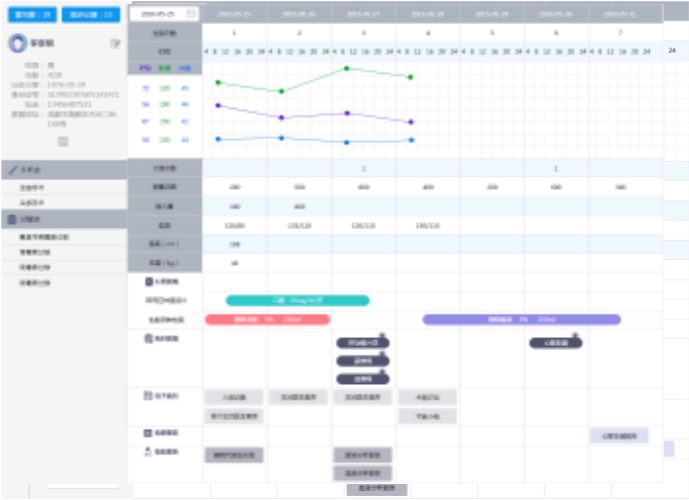The open platform raises the profit ceiling
“Smart Hospital” is at a boom. The emergence of technologies such as AI, big data, cloud computing, Internet of Things, etc. has made the hospital information system more scientific and technological, and the sudden outbreak has also made medical information more attractive. Attention.
“Microdiagnosis and Intelligence” is a medical PaaS + SaaS platform that has been in contact recently. It provides medical information application services for medical institutions at all levels.
Weiji Jizhi believes that the key indicators of the medical information system are standards, framework, stability and information security. The micro-diagnosis Zhizhi medical PaaS platform is based on the Docker virtualized cloud native, and the standard uses FHIR medical interoperability data; in terms of stability and speed, the microdiagnosis Jizhi achieves 10,000 levels per second, which can support the simultaneous use of thousands of hospitals; In terms of information security, the OAuth2 protocol is for security authentication, the authorization of information use is detailed to the field level, and a hybrid medical cloud platform where public and private clouds coexist is provided.
The micro-diagnosis Jizhi Medical SaaS platform is an integrated application system based on PaaS-based series of micro-applications orchestrated by services. It can be understood as a data hub, helping to eliminate information islands and realize homogeneous and heterogeneous applications within the hospital. System interconnection, unified data elements and data sets, unified interface standards of various business systems and platforms, seamless integration, to achieve the ability to plug and replace the system.
For example, in a top three hospital, micro-diagnosis Jizhi Health PaaS access more than 50 actual system applications, greatly reducing the hospital system interface costs, reducing the time cost and economic cost of replacing the system, a total cost savings About 5 million.

Example of micro-diagnostic intelligence system
Open access to “micro applications” and provide “App Store for Medical Information Systems”
In the industry, traditional hospital software service providers are basically engaged in HIS services, such as Neusoft Group and Wanda Information, are typical of the gradual transformation from traditional HIS to hospital information platform. While Changliang Technology and Donghua Software invested by Tencent, Weining Information of Alibaba Investment are more standard to cut in with the SaaS cloud service model.
Different from the above competing products, the biggest feature of the micro-diagnosis set is to provide an open and shared platform. Instead of a company developing all customized applications, the platform is open to all kinds of micro application software, similar to “medical Information System App Store “. The standards among these software are unified, interconnected, plug and play, and one-click deployment. At present, it has more than 280 professional medical application systems.
The advantage of this is that micro-diagnosis and intelligence can provide the function of subdividing categories at a lower cost, and provide the hospital with flexible process re-engineering capabilities. On the other hand, software developers need to go through the steps of expert demonstration, bidding, installation and deployment, system docking, etc. in the past, and the interface fee reached hundreds of thousands of yuan. However, the one-click deployment through the micro-diagnostic intelligence application market requires no hospitals The fee can be tried first and then the bidding process. Micro-diagnosis only draws a certain percentage of channel fees, and reduces the development and implementation cycle from 3 months to 3 days, which greatly reduces the entry threshold and business promotion costs of software developers. In the future, “micro applications” that can be accessed are also more extensive.